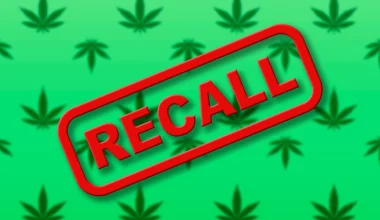South Dakota’s estimated $66 million medical marijuana industry supports a law-enforcement crackdown on intoxicating hemp THC products.
The Pennington County Sheriff’s Office recently conducted a sting operation targeting hemp-based THC products at eight smoke shops and convenience stores in the Rapid City area.
Jeremiah Murphy, a lobbyist for the Cannabis Industry Association of South Dakota, told the state’s Medical Marijuana Oversight Committee on Tuesday that hemp-derived alternatives put the state’s modest MMJ industry at a disadvantage, according to the South Dakota Searchlight.
Hemp access hurting South Dakota MMJ
There are only about 14,000 patients in the state, and MMJ advocates contend that the number will go down because of access to hemp.
“Why do I go to a doctor and pay him and why go pay the state to pay even more money, when I can go to the vape shop, or I can go to the hemp story and they’re selling exactly what I need?” Murphy said.
His organization represents South Dakota’s 116 licensed medical cannabis cultivators, manufacturers and dispensaries.
During the sting operation, law enforcement bought gummies, THC drinks and other products infused with hemp-derived THC.
The Sioux Falls Police Department is waiting for lab test results from a compliance check it conducted to determine how to proceed with one case, spokesman Aaron Benson said.
Some lawmakers in Congress have been working to close the so-called “loophole” in the 2018 Farm Bill that’s led to a nationwide proliferation of intoxicating hemp-derived THC products.
However, a squabble between Senate Republicans saw a recent effort to redefine hemp under federal law blocked.
South Dakota did pass a 2024 ban on “chemically synthesized” THC, the Searchlight noted.
Sales of MMJ in South Dakota could reach $66 million this year, according to an MJBizFactbook projection.
Medical Disclaimer:
The information provided in these blog posts is intended for general informational and educational purposes only. It is not a substitute for professional medical advice, diagnosis, or treatment. Always seek the advice of your physician or other qualified healthcare provider with any questions you may have regarding a medical condition. The use of any information provided in these blog posts is solely at your own risk. The authors and the website do not recommend or endorse any specific products, treatments, or procedures mentioned. Reliance on any information in these blog posts is solely at your own discretion.






